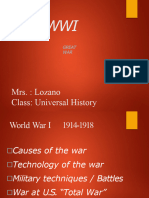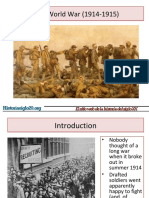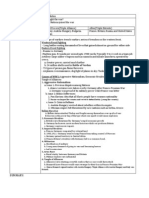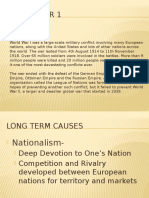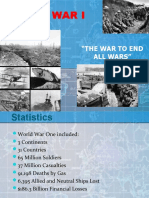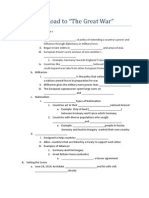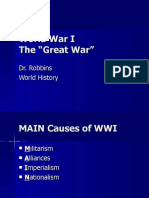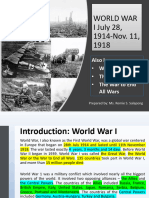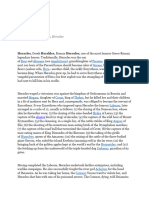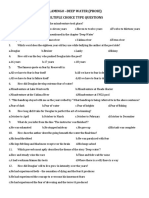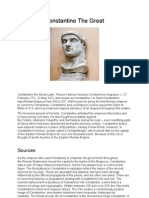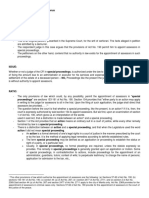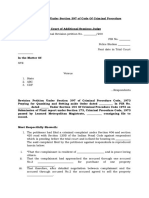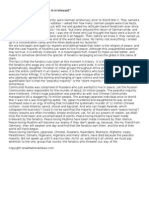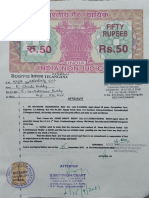0% found this document useful (0 votes)
12 views6 pagesKami Export - WWI GN
The document outlines the long-term and short-term causes of World War I, emphasizing the four main causes: militarism, alliances, imperialism, and nationalism. It details the assassination of Archduke Franz Ferdinand, which triggered the July Crisis and subsequent declarations of war among European powers. Additionally, it discusses the involvement of the United States, key battles, and the eventual peace negotiations leading to the Treaty of Versailles.
Uploaded by
jarrettlaCopyright
© © All Rights Reserved
We take content rights seriously. If you suspect this is your content, claim it here.
Available Formats
Download as PDF, TXT or read online on Scribd
0% found this document useful (0 votes)
12 views6 pagesKami Export - WWI GN
The document outlines the long-term and short-term causes of World War I, emphasizing the four main causes: militarism, alliances, imperialism, and nationalism. It details the assassination of Archduke Franz Ferdinand, which triggered the July Crisis and subsequent declarations of war among European powers. Additionally, it discusses the involvement of the United States, key battles, and the eventual peace negotiations leading to the Treaty of Versailles.
Uploaded by
jarrettlaCopyright
© © All Rights Reserved
We take content rights seriously. If you suspect this is your content, claim it here.
Available Formats
Download as PDF, TXT or read online on Scribd
/ 6








